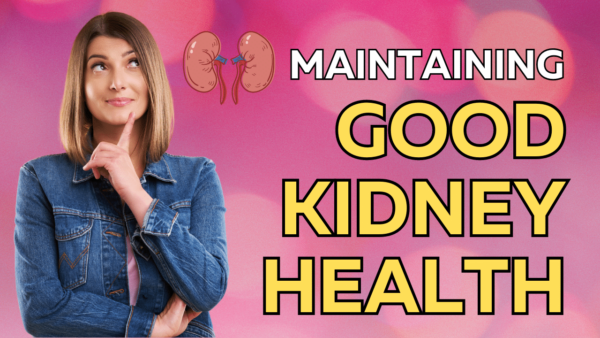Did you know how prednisone can be used to treat arthritis? Let us know about arthritis and Prednisone in this article in detail.
What is arthritis?
Arthritis is a joint disease that lasts for a long time and is very common. It can lead to discomfort and irritation, making it hard to move around and keep an active lifestyle. Various symptoms of arthritis may appear at different times during one’s life. Arthritis is more common in elderly individuals, but it can affect men, women, and children of any age, including children. Most often, arthritis affects the Toes., Hips, Hands., Legs., middle back
Symptoms of arthritis:
- Different kinds of arthritis have other signs and symptoms. They could cause a lot of trouble depending on the individual. Symptoms of joint pain can come and go or be there, depending on how bad the condition is. This condition is often marked by pain.
- The skin is red and stiff, and the body is swollen.
- Sensual tenderness and warmth
What types of treatments have been employed to ease the symptoms of arthritis?
Medications comprising fat, oil, honey, or bone marrow were utilized to cure osteoarthritis in ancient Egypt by traditional medicine practitioners (OA). It was customary for them to be made from flour, baking soda, cumin, and incense, among other dry components.
What is Prednisone?
The course of action Prednisone is prescribed to people who have low levels of corticosteroids in their bodies. According to the manufacturer, it can be used alone or in combination with other treatments to compensate for a “lack of specific compounds that the body normally produces and that is required for regular body functioning,” according to the manufacturer.
The use of Prednisone in the treatment of other conditions, such as allergies, can be beneficial for patients who have normal corticosteroid levels in the blood. Arthritis, multiple sclerosis (including lupus), allergic reactions, and diseases of the skin and eyes are just a few of the ailments that belong under this group of conditions. Thyroid diseases (including thyroid cancer), stomach, and intestines.
Additionally, eczema and itchy skin are common complaints. The anti-inflammatory drug prednisone can also ease cancer symptoms in some instances. Prednisone is classed as a corticosteroid, a class of anti-inflammatory medication. It is possible to treat patients with low corticosteroid levels by augmenting the body’s natural synthesis of the steroids with synthetic corticosteroids manufactured in a laboratory setting. As a result of the reduced swelling and redness and the altered immune system activity, it can be used to treat various other disorders.
How to take Prednisone?
Prednisone can be taken orally as a tablet, a tablet that releases the medication gradually, a liquid solution, or a highly concentrated liquid solution. Prednisone can be administered once a day to four times a day or once a week, based on the severity of the illness. Your doctor will most likely advise you to take your prednisone dose(s) every day at specific times of the day. Depending on the severity of your disease and how well you respond to therapy, your dosage will be adjusted accordingly; if you have any doubts about the directions on the prescription label, you should consult your doctor or pharmacist.
Make sure you take Prednisone according to what your doctor tells you to do. Do not exceed the dose, frequency of use, or duration of treatment indicated by your doctor. If you’re using the concentrated solution, measure your amount with the dropper that comes with it. You can also mix the full solution with juice or other tasty liquids and soft foods like applesauceChewing or crushing this tablet is not recommended; instead, it should be eaten whole. You may need to change your dose many times during your treatment to ensure you get the lowest effective amount of Prednisone. Your doctor may also decide that you need a different dose if your body is under unusual stress, such as after surgery, a serious illness or infection, or a bad case of asthma. Tell your doctor about any changes in your health while getting treatment, like if your symptoms get better or worse.
How to store Prednisone?
Maintain complete separation of all medications from children’s reach and sight, and store them in a cool, dry location away from direct sunlight and heat. It’s possible that Prednisone can help you manage a long-term illness, but it won’t cure it. You should keep taking Prednisone even if you feel better. Before you stop taking Prednisone, talk to your doctor.
If you stop taking Prednisone suddenly, your body might not have enough of its steroids to work at its best. Extreme weariness, weakness, decreased movement, upset stomach, and weight loss are all possible side effects of this condition. Contact your doctor if you develop any of these or other unexpected symptoms while using Prednisone at a lowering dose or after stopping the medicine.
Prednisone’s side effects:
- The adverse effects of Prednisone are possible. You need to see your physician if any of the symptoms listed continue or are troubling:
- Headaches
- Loss of coordination
- problem getting to sleep and waking up in the morning
- Sudden and dramatic shifts in mood
- Personality shifts, swollen eyes, acne, and thin, crispy skin are all signs of aging.
- Wounds and bruises that take longer to heal are more likely to result in red or purple spots under the skin.
- Exhaustion, weak muscles, and an improper sense of well-being are among the side effects of obesity. erratic or non-existent menstrual cycles; decreased sexual drive; heartburn; excessive perspiration; vision issues
Some adverse effects can be fatal. You should seek immediate medical assistance if you observe any of the following symptoms:
- Eye ache, redness, or tears;
- Sore throat, fever, and chills;
- Cough or other symptoms of infection
- Convulsions
- Depressed mood.
- Disconnection from reality
- Perplexity
- Tingling or stiffness of the biceps
- Unintentional hand shaking
- Numbness, burning, or numbness in the hands, arms, legs, or feet
- Nausea, blurry vision, a rapid or irregular heartbeat
- Unexpected weight gain, breathlessness, particularly at night, a dry, hacking cough
- Stomach enlargement, swelling of the eyes, cheeks, lips, tongue, throat, arms, hands, feet, ankles.
When children are administered Prednisone, their growth and development may be hampered. The doctor will keep a close check on your child’s physical growth throughout life. It would help to discuss any potential hazards associated with administering Prednisone to your child with their doctor. The usage of Prednisone may increase the likelihood of getting osteoporosis.
If you are using Prednisone, speak with your doctor about the potential adverse effects of the medication and measures to reduce your chance of developing osteoporosis while taking it. It has been discovered that some people have Kaposi’s sarcoma, a type of cancer that has been connected to the use of Prednisone or other comparable medications. Contact your doctor to see if Prednisone is right for you.
How can Prednisone help your arthritis?
Arthritis is a chronic condition that results in inflammation, pain, and swelling of the joints over a long period (RA). The usage of corticosteroids, such as Prednisone, can help to lessen the inflammation in the body. This means that Prednisone can be used to relieve the symptoms of arthritis, such as swelling and stiffness in the joints. Because of this medication, you will feel less pain.
Precautions Before taking Prednisone:
You may need to utilize a drug with extreme caution if you have a medical condition that prevents you from taking it. Before you start taking Prednisone, you should talk to your doctor or pharmacist about the pros and cons of this drug. Women who are pregnant should avoid this. You should consult your doctor before using this medication if you have high blood pressure, heart problems, or liver or renal problems.
The treatment of diabetes and ocular hypertension should be considered for individuals at risk (glaucoma). Avoid vigorous physical activity if you have weak bones (osteoporosis), even if you’ve previously been diagnosed with a mental condition like depression. Seizures are a possibility if you have them. You should not participate if you are currently ill or have ever had tuberculosis Or TB. If you or someone you know recently had chickenpox, measles, or shingles, you should be particularly careful due to the risk of blood clots.
In what period does Prednisone begin working?
This tablet is typically effective in just an hour or two of ingestion. After taking a significantly delayed tablet, you won’t feel its effects for nearly six hours. After you’ve stopped taking it, the medicine won’t be in your body for long.
Can you take Prednisone daily for arthritis?
Depending on the type of inflammatory arthritis, smaller doses of Prednisone (1–10 mg per day) may be enough. On the other hand, some kinds of inflammatory arthritis may need doses of 20 mg or more per day.
Conclusion:
Arthritis is a joint disease that affects a lot of people. The therapy Prednisone is used to treat low corticosteroid levels. It can be used alone or with other treatments {lack of certain natural substances that the body normally makes and that are required for normal body function}.
If your corticosteroid levels are normal, you can safely take Prednisone to treat your allergy symptoms, arthritis, and bad reactions to allergies. Rheumatoid arthritis is characterized by joint discomfort and swelling. Corticosteroids like Prednisone can help reduce inflammation. Because of this, Prednisone can help ease the pain and stiffness that come with arthritis. This will make you feel less pain.
Could you have arthritis? Find out with a simple blood test. No doctor’s note is necessary.

